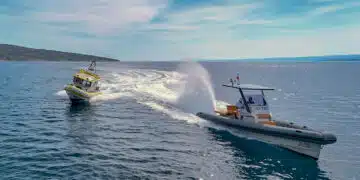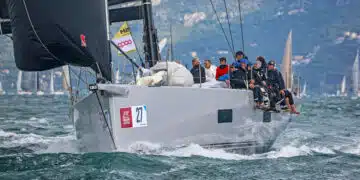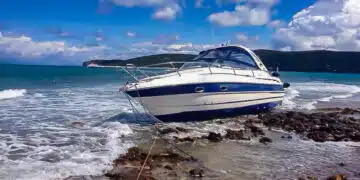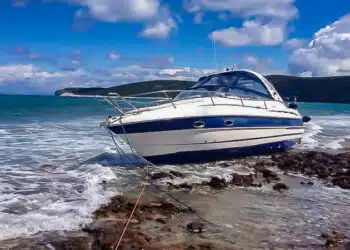Often you can hear that skippers in the Netherlands would not need licenses. This is not correct. SeaHelp, Europe’s largest breakdown service at sea, lists the legal requirements. Tip of SeaHelp editors: who plans a trip in Holland, whether with their own or charter yacht, is well advised to insure the boat sufficiently beforehand.
Often you can read or hear that recreational boaters in Holland can boat without a license. Unfortunately, this is not correct. On the safe side is who checks before the planned trip, the driving license requirement of his particular boat in the planned, to navigate area.
In general: For driving boats with a length of 15 meters and more as well as motor boats, which can drive faster than 20 km/h, the Dutch “Klein Varbewijs II” is required on the Ijsselmeer. Important: only the official driving licenses are recognized for this purpose!
Who drives boats longer than 15 meters on the Ijsselmeer, requires a driver’s license. The same applies to motorboats faster than 20 km/h
For the Dutch inland waters, these are specifically the German Sportbootführerschein Binnen (SBF Binnen) and the Sportschifferzeugnis or the Austrian Schiffsführerpatent SFP 10.
Who wants to go further out, for example, on the Ijsselmeer, the Waddenzee, the Ems, the Dollart or the Wester- and Osterschelde, on the other hand, needs the (German) Sportboot-Führerschein See (SBF See) or the Rhein-Sportschifferpatent or the Austrian Küstenpatent Fb1 or 2. Charterers usually require the SBF See or the Küstenpatent for trips on the Ijsselmeer.
Only if the sailboats are shorter than 15 meters (length overall), or if the motor yacht has a speed of less than 20 km/h, these boats may exceptionally be operated without a certificate of competency.
In case of doubt, however, that is a whole lot of boats in the Netherlands. And: unfortunately, it must be assumed that not everyone who is on the road there with a mobile undercarriage, also knows the traffic rules.
Only if the boats are shorter than 15 meters or do not reach 20 km/, these boats may be driven without a license.
“Therefore, and since there is only an insurance obligation for fast boats in the Netherlands, skippers should definitely take out liability and especially hull insurance for their boat before the Holland trip”, advises SeaHelp insurance expert Robert Perger.
Many loss events could happen without being “at fault” for the incident. On the other hand, not every damage caused by a third party to one’s own yacht automatically leads to the liability insurance of the damaging party paying.
“Here helps the hull insurance”, advises insurance specialist Perger. The hull insurance serves for the security of the own yacht; in addition against a small surcharge for instance also salvage costs, wreck removal and disposal are taken over, as far as that becomes necessary.
It should be noted that these costs can be considerably higher than the value of the boat or yacht.
A good double: inexpensive hull and liability for your own boat from SeaHelp-Insurance
Liability insurance is also invaluable, he said, even if it is not a “mandatory” insurance required by law. “It should be borne in mind that the boat owner is liable with his entire personal assets for damage caused by his recreational craft,” Perger points out, adding that it makes “no difference” whether the damage is to persons or property, assets or even rental property.
The liability insurance protects comprehensively against incalculable costs and takes over besides also the defense of unjustified requirements, explains the SeaHelp Insurance specialist. The premiums for sailboats are relatively inexpensive.
Thus one pays for example for a liability insurance (cover sum 4 millions euro) only 115 euro; also a hull insurance, which can be locked completely simply over SeaHelp, is not expensive: with a boat value of 50,000 euro this costs approximately 450 euro, if the value of the yacht amounts to 100,000 euro, the hull premium amounts to 860 euro.
SeaHelp bases in the Netherlands

Further information:
Request a no-obligation boat insurance quote: SeaHelp online form
All SeaHelp bases in Europe: Interactive map.
The bases in the Netherlands are operated jointly with SeaHelp’s Dutch partner Reddingsdienst.
24h EMERGENCY CALL EUROPE: 0043 50 43 112
In an emergency, SeaHelp response boats can call using the handy SeaHelp app, or on the free emergency number for Europe 0043 50 43 112 can be called.
Download SeaHelp app:
* terminal or telecommunication service charges may apply.















